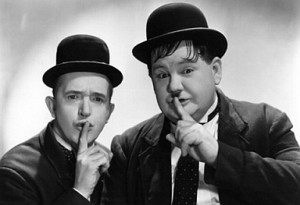What Was Really Wrong With Miley Cyrus on the VMAs
Posted on August 26, 2013 at 3:06 pm
Another VMA broadcast on MTV, another morning-after round of horrified reactions. This time, most of the criticism is focused on former Disney tween star Miley Cyrus, whose dance with Robin Thicke included the usual VMA trifecta for female performers: skimpy costumes (one ripped off to reveal an even skimpier one), lewd gestures, and raunchy gyrations.
A lot of people are fulminating about it today. Some are shocked, presumably those unfamiliar with either the VMAs or the trajectory of female tween stars who like to show everyone that they’ve grown up. It’s too bad that they so often think that means posing for what used to be called cheesecake photos and other signifiers of sexuality. Past generations gave children poor guidance by not giving them frank and honest information about sexuality and the result was guilt and repression. I am not sure the information we give the younger generation now is any more accurate. Now they feel guilty for not living up to some impossible icon of “sexiness.”
Some try to make it fit a bigger cultural picture. And there’s a predictable backlash to the backlash. That’s nonsense. She was not expressing herself. She was trying to fit into a distorted notion of what she was supposed to be based on the expectations of people who had no interest in her being herself. Just as with this summer’s “The To-Do List,” people are confusing empowerment with the acting out of externally imposed “norms” that are just as strict in their own way as 19th century strictures against any sexual contact.
For me, it was just sad. I find it hard to imagine that anyone found it sexy or entertaining. It felt calculated and desperate. There was no sense of playfulness or sensuality or pleasure.
It is painful to imagine the kind of pressure Miley Cyrus must be under as she transitions to another stage in her career. In a pre-show interview, she brought up the notorious Britney Spears/Madonna kiss and it was clear she was hoping to create that level of transgressive buzz. Instead, she must be embarrassed.
Miley’s fellow Disney alums Selena Gomez and Demi Lovato were also at the VMAs and both won awards. They were gracious and lovely. It is possible for a tween pop star to mature into a successful adult performer and still be cool.
Miley would be better off trying to follow their example than to try to be Lady Gaga, whose opening number last night should have alerted Miley to the risks of a brand based on “oh no, she didn’t!” Gaga’s 2010 meat dress was as hard an act to follow as Hannah Montana.

